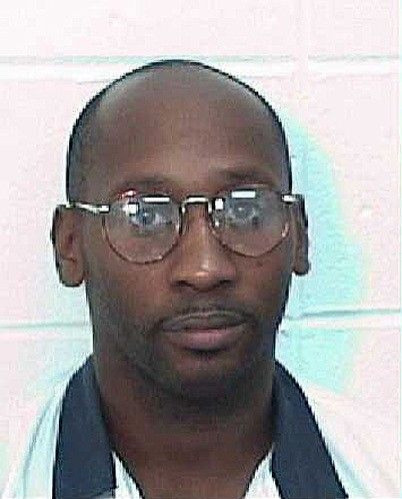Troy Davis Executed After Top Court Rejects Last Appeal

The state of Georgia executed Troy Davis Wednesday night after the U.S. Supreme Court rejected a last-minute appeal for a stay.
The execution took place at 11:08 p.m. EDT, The New York Times reported.
For nearly four hours after he was scheduled to receive a lethal injection, Davis' life remained in legal limbo as the court considered his appeal. But in the end, there was no judicial relief.
It had seemed all but certain that Davis would be executed at 7 p.m. for the 1989 murder of Savannah, Ga., police officer Mark MacPhail. Frantic appeals by his lawyers and public supporters to various state and federal courts had failed in recent days, and Davis' last recourse seemed lost when the Georgia pardons board rejected his request to take a polygraph test and the Georgia Supreme Court refused to stay the execution or to commute his death sentence to life in prison without parole.
But then, just minutes before 7 p.m., a rumor rippled through the crowd of supporters gathered outside the Georgia Diagnostic and Classification Prison in Jackson, Ga., where the state's death-row inmates are held, that the U.S. Supreme Court had ordered the execution delayed to allow more time to consider Davis' appeal.
With that, Davis' family and his hundreds of supporters began to wait. Inside the prison, Davis waited, too -- still strapped to the gurney in the execution chamber, if information that Democracy Now characterized as hearsay is correct. He had spent the past few hours with his family and seemingly come to terms with his death. He did not choose a last meal.
The mood outside the prison was tense, to say the least. Larry Cox, the executive director of Amnesty International -- one of the groups that have fought to overturn Davis' death sentence -- told Amy Goodman of Democracy Now that at any minute, we could get terrible news.
The vast majority of the people gathered outside the prison were supporters of Davis, but there were also some counter-protestors, including the family of MacPhail, the murder victim. They told reporters they firmly believed Davis was guilty and just wanted the 22-year ordeal to be over.
MacPhail was shot in 1989 in a Burger King parking lot in Savannah while trying to help a homeless man whom, prosecutors said, Davis was beating. No gun was found, but Davis was convicted on the basis of shell casings from an earlier shooting in which he was implicated, as well as seemingly solid testimony from several eyewitnesses.
But of the nine witnesses who testified against Davis in 1991, seven have since signed affidavits changing all or part of their testimonies. Some said the police had pressured them to implicate Davis, and some went on to accuse another man, Sylvester Coles, of the murder.
In August 2009, the Supreme Court ordered the federal district court in Georgia to grant Davis a new evidentiary hearing, which was held in 2010. The district court upheld the conviction, calling the defense's arguments largely smoke and mirrors.
Davis' execution was originally scheduled for July 2007, but it was postponed three times because of last-minute efforts by his supporters. Never before, though, had he gotten a reprieve this close to the scheduled execution time.
More than 900,000 people have signed petitions urging state and federal authorities to grant Davis clemency. He has received support from Amnesty International and the National Organization for the Advancement of Colored People, as well as from an array of prominent political and religious figures, including former President Jimmy Carter, Pope Benedict XVI, Archbishop Desmond Tutu, the Rev. Al Sharpton and former FBI Director William Sessions.
There is no DNA, no gun, no physical evidence, Sharpton, a longtime civil rights activist, told protesters who gathered on Wednesday outside the prison in Jackson, Ga., where Davis was being held. That is unheard of in a civilized society. This is much bigger than Troy Davis -- it's about people having the right to seek redress.
Sharpton was not the only person who saw far-reaching implications in Davis' experience. The case gripped the country and many parts of the world, and many protesters said that even if Davis were executed in spite of their efforts, they would continue to work to prevent future executions in cases with disputed evidence.
Many people have woken up because of this case, and we hope people will stay awake and continue to fight, Kathryn Hamoudah, head of the anti-death penalty organization Georgians for Alternatives to the Death Penalty, told Amy Goodman of Democracy Now.
© Copyright IBTimes 2024. All rights reserved.





















